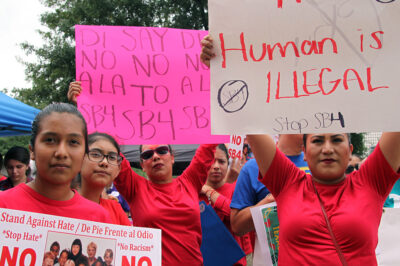ACLU Comment on United Nations Reports on Law Enforcement Data Collection and Lack of Progress on Transformative Change
GENEVA — Following the United Nations Human Rights Council’s historic George Floyd resolution last July, the U.N. Expert Mechanism to Advance Racial Justice and Equality in Law Enforcement (EMLER) presented its first report today stressing the importance of centralized data collection on race and other demographics in eliminating systemic racism in policing.
The council for the first time heard from two representatives of directly impacted communities who spoke from the podium as well as civil society groups, including the U.N. Anti Racism Coalition and the American Civil Liberties Union, as part of a dialogue surrounding the release of the EMLER report and and a new report by the High Commissioner for Human Rights which noted lack of progress to address police violence and systemic globally including in the United States and stressed the urgent need for transformative change.
Collette Flanagan, founder and director of Mothers Against Police Brutality, whose son Clinton Allen was shot and killed by a Dallas police officer in 2013, was one of the speakers representing directly impacted community members. She said during her intervention to the council:
“If we are to elevate human rights in policing, we will have to address three challenges: the use of deadly force, the judicial doctrine of qualified immunity, and the treatment of families and communities suffering from racial profiling, police brutality, and extrajudicial killings.”
Jamil Dakwar, director of the ACLU’s Human Rights Program, presented a video and written statement as part of the dialogue and had the following reaction:
“We agree with the United Nations report: Data collection is not a panacea for ending systemic racism, but it is a key tool to help us understand the extent to which Black and Brown communities are targeted and disproportionately impacted by police violence. The United States is home to more than 18,000 law enforcement agencies, and it is clear that current data collection requirements have failed. The burden should not fall on victims, impacted communities, and media outlets to document and collect data on policing practices and abuses. To be clear: the solution involves shifting resources to support life-affirming alternatives to policing, meaningful accountability, and rigorous monitoring and enforcement of data collection laws and policies, not more cops on the streets.”
The ACLU’s submission to the U.N. on lack of adequate data collection on policing is available here.
Here is the video of today’s council meeting and interactive dialogue with EMLER which starts at minute 1:01:34.
Stay Informed
Sign up to be the first to hear about how to take action.





